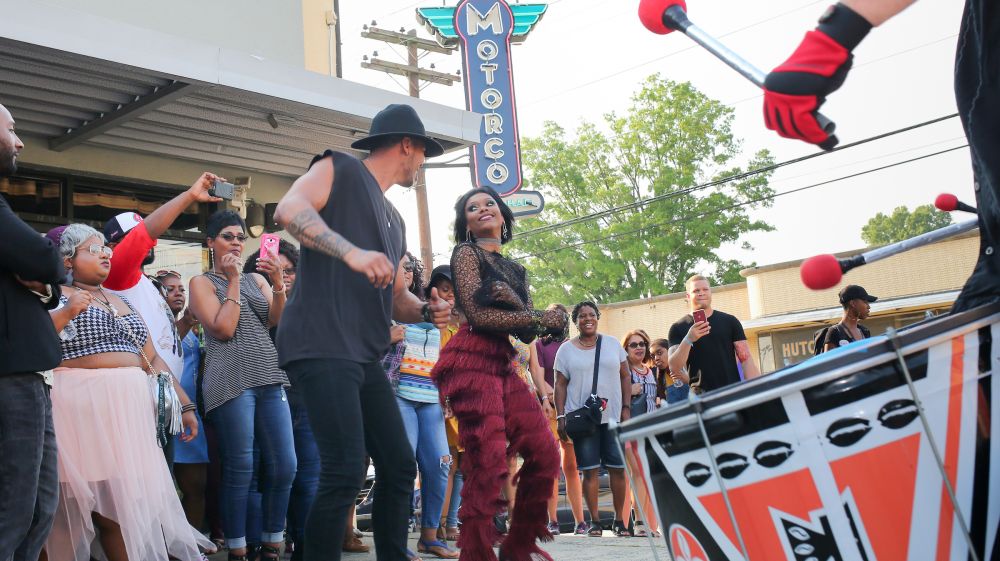Selina Mack: Finding Homes for Durham's Heart
2 minutes
Selina Mack is the executive director of the Durham Community Land Trust. As Durham grows, she's determined to ensure that its evolution doesn't outpace legacy communities.
Posted By Ashley Strahm on Feb 17, 2020
“In three words: Durham has pride, is progressive, and is historical. The Durham Community Land Trust wouldn’t have happened if the community hadn’t mobilized."

Hailed as a model that supports proactive, inclusive neighborhoods, The Durham Community Land Trust (DCLT) is the lasting legacy of Durham residents coming together to preserve home ownership over 30 years ago. Even then, Durham residents were facing obstacles to aging in place due to the appreciation of land — after generations of passing down homes within families. Others were tenants who hoped to own their own residences after rental experiences fraught with instability. Those West End neighbors were pioneers, banding together to advocate for the purchase of multiple lots that, once placed in a trust, keep home prices affordable and virtually immune to market forces that drive costs up.
It's been over two decades since Selina Mack began working with DCLT, and she's more focused on the mission than ever.
As the executive director of DCLT, Selina receives calls from organizations all over the country looking to replicate the community land trust model to solve issues that correspond to rising home costs. She's incredibly proud of the work DCLT has done, but notes that its continued impact relies heavily on the financial support of donors that want to keep Durham affordable for all. She fondly talks about a street named after Civil Rights advocate Pauli Murray, which is the only street in Durham where only non-profits developed homes: Self Help, DCLT, and Habitat of Humanity. DCLT has since expanded from the historically African American neighborhood of West End (which has 130 land trust owned rental units). Now, DCLT manages over 150 permanently affordable homes in other historically Black neighborhoods like East Durham, Southside, and Lyon Park. The key to sustaining the culture that Durham is known for, she says, is to ensure that communities are able to continually contribute to Durham's sense of place.

“I experience Black history in Durham every day," Selina says. "Durham is a city that is steeped in Black history. There’s a lot of attitude and fortitude here in Durham, and I'm fortunate to be able to work in Durham’s West End neighborhood. The West End is a community that is historically African American, and we’ve done quite bit of work in these neighborhoods in terms of transforming them, and creating a great deal of stability and home ownership for the families that are living here. I’m hopeful that the younger generation, particularly children my grandson's age, will learn to appreciate just [what] Durham is, especially the historical aspect of what makes Durham the great city that it is."
Update: Selina Mack retired from the Durham Community Land Trust in December, 2022.
Selina Mack was photographed and interviewed in the West End neighborhood, one of the oldest and largest historically African American neighborhoods in Durham. Home to Pauli Murray, civil rights advocate, and Richard Fitzgerald, Durham's leading brick maker in 1884, myriad artists and business owners, and community mobilizers throughout Durham's history have lived here.


